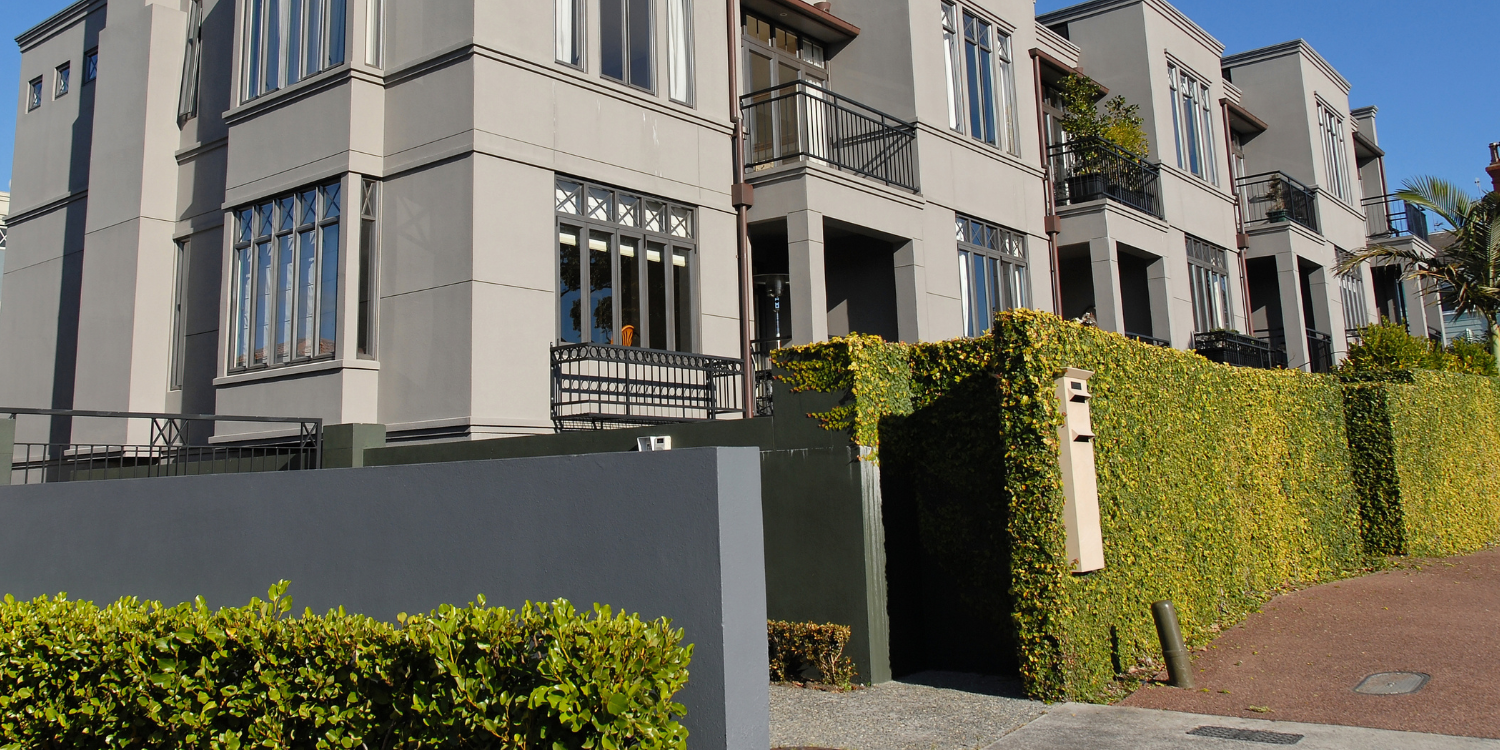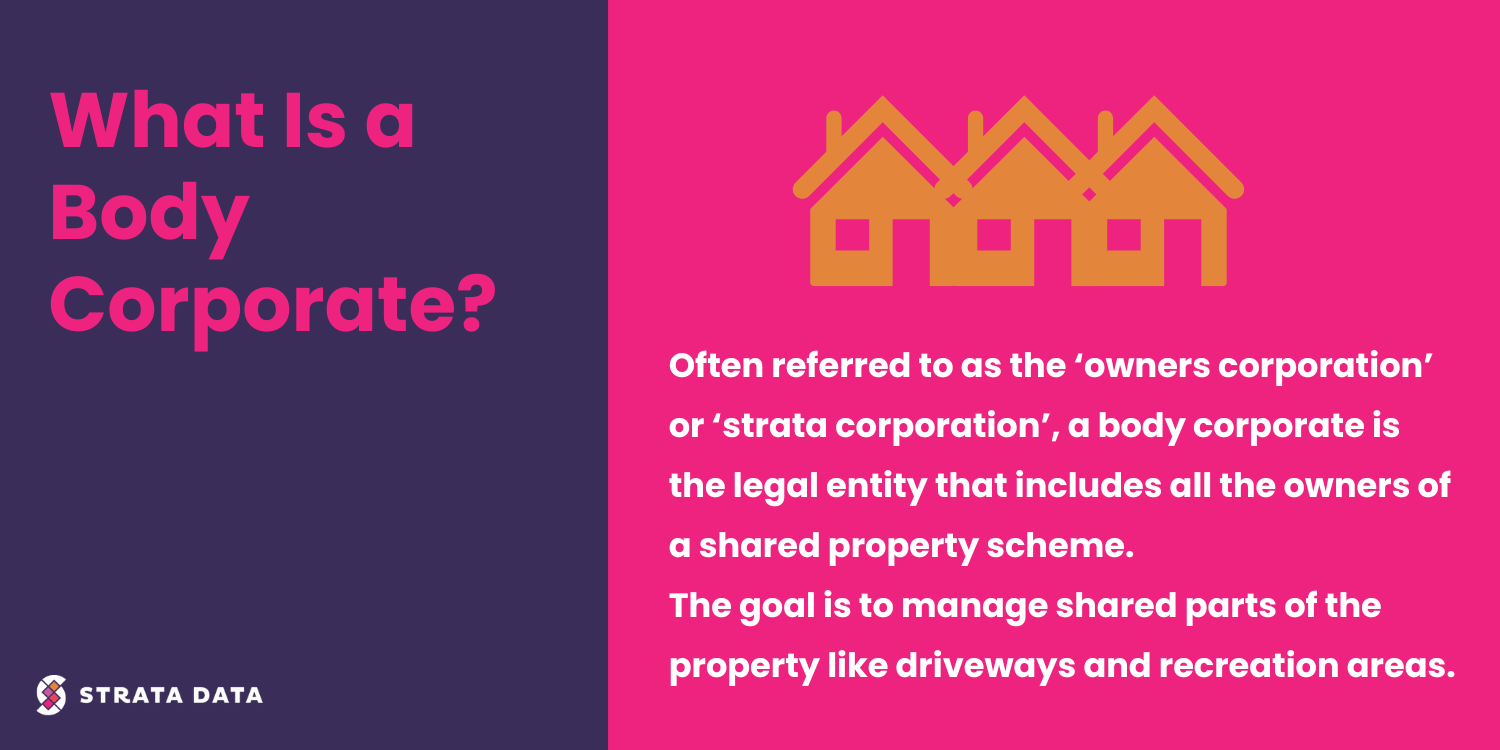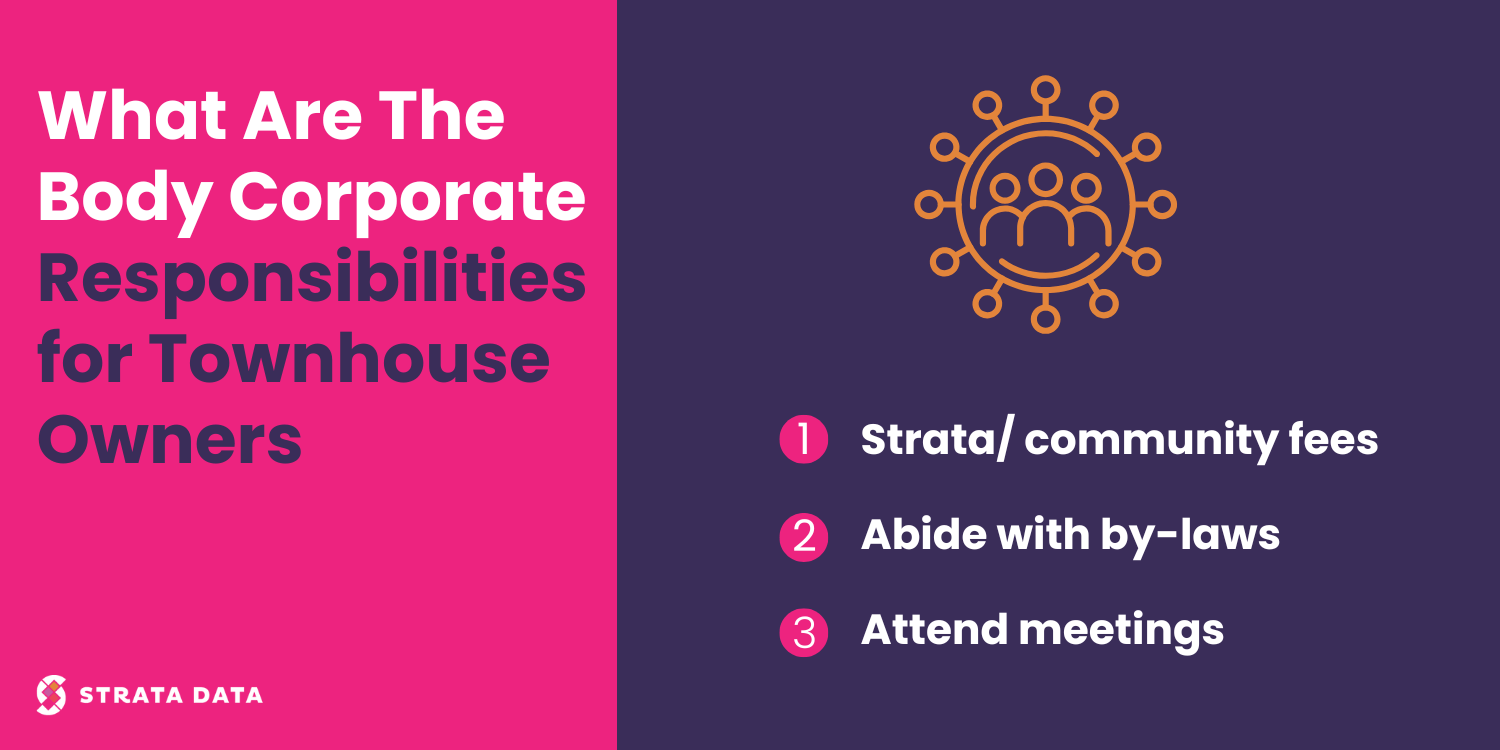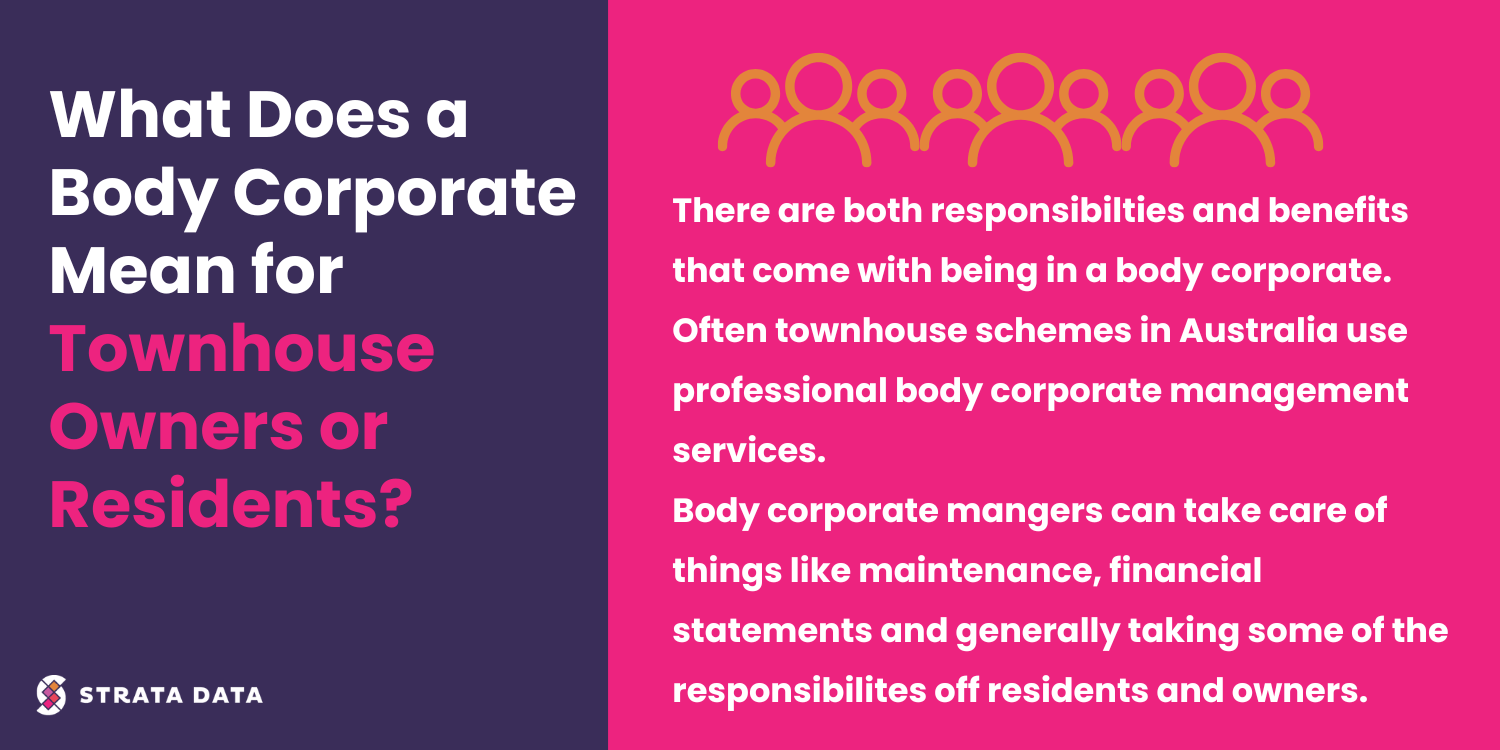Are Townhouses part of a Body Corporate?

Generally, townhouses come with a body corporate structure. However, there are certain circumstances where townhouses may not have body corporate, depending on the type of property title.
Whether or not a townhouse has a body corporate will make a big difference in owner responsibilities such as ongoing fees, arranging for maintenance, and the need for building insurance.
What Is a Body Corporate?
Across Australia, body corporate refers to the legal entity that consists of all owners within a shared property scheme. Body corporate is also commonly referred to as the ‘owners corporation’ or ‘strata corporation’.
The purpose of a body corporate is to manage the shared components of a property – shared areas may include driveways, walls, roofs, elevators, recreation areas, and outdoor spaces that are collectively owned and used by all owners. The body corporate ensures that all owners contribute fairly to the upkeep of the townhouse and governs the proper use of shared facilities.

When Do Townhouses Have Body Corporate?
Each state in Australia has a legal framework that applies to bodies corporate. In South Australia, the legal framework for such properties are the Strata Titles Act 1988 (SA) and the Community Titles Act 1996 (SA). Older shared-property schemes created before 1996 remain under the Strata Titles Act 1988, while those created after 1996 fall under the Community Titles Act 1996. Most townhouses in South Australia are recognised as strata title schemes.
A townhouse will have body corporate if it is part of a strata or community title arrangement. The title arrangement for a townhouse can be found listed as part of a property search during the purchase process.
Another way to determine if a townhouse has body corporate is if it has common property. A body corporate is required to manage the upkeep of common property through the use of ongoing contributions from owners.
Body Corporate Responsibilities for Townhouse Owners
Owners of a townhouse property will automatically become part of the body corporate, if there is one. As part of the body corporate, owners are bound by the responsibilities and obligations of the title’s articles or by-laws.

Strata/community fees
Body corporate members are required to pay ongoing fees for the maintenance of the townhouse’s common property. These contributions also fund building insurance, repairs, and long-term maintenance plans, ensuring the property remains in good condition and compliant with safety standards. However this means these costs will not have to be covered under private expenditure which can result in a cost saving.
Abide with by-laws
A townhouse with body corporate will have a set of rules (articles or by-laws) that all owners and tenants must follow. These by-laws are put in place to ensure all residents can enjoy shared spaces without conflict. By-laws cover matters such as noise level, parking, the use of common property, and pet ownership.
Attend meetings
Body corporate members can attend general meetings to weigh-in on decisions that affect the entire property, such as changes to by-laws or arrangements for maintenance works. This provides each owner some decision-making power regarding the state of the townhouse.
Cases Where Body Corporate May Not Apply to a Townhouse
In some cases, townhouses can have no body corporate. This can happen if the townhouse is registered with a standalone Torrens title.
Under a Torrens title, also known as freehold, the townhouse is not legally required to have a body corporate. Instead, the shared responsibilities of ownership and maintenance are separately arranged with other lot owners.
Most townhouses under a Torrens title have little to no common property – each owner retains ownership of their own lot. Townhouses with no body corporate can still have specific easements for a shared backyard or driveway to manage use between owners.
Without body corporate, townhouse owners do not have to pay strata levies or abide by by-laws. However, the lack of a body corporate means that owners have to arrange for building and contents insurance individually, and are partially dependent on immediate neighbours for maintenance requirements. This is especially the case when lots within a townhouse have common walls – conducting work on the wall will require coordination with the neighbouring unit.
What Body Corporate Means for Townhouse Owners and Residents
For townhouse owners, being part of a body corporate comes with responsibilities and benefits. Body corporate members are responsible for contributing to the upkeep of shared areas, following by-laws, and participating in decisions that affect the property.
To manage these tasks efficiently, many townhouse schemes in Australia use professional body corporate management services. Body corporate managers handle day-to-day administration, enforce by-laws, organise maintenance, and prepare financial statements, ensuring the property runs smoothly while relieving owners of much of the operational burden.
Strata Data is South Australia’s leading strata management company – we provide body corporate management services in Adelaide for townhouses and community schemes that cover everything necessary to ensure a well-maintained and harmonious living environment for all residents. If your townhouse scheme requires support for managing upkeep, insurance, and conflict resolution, we can help.




